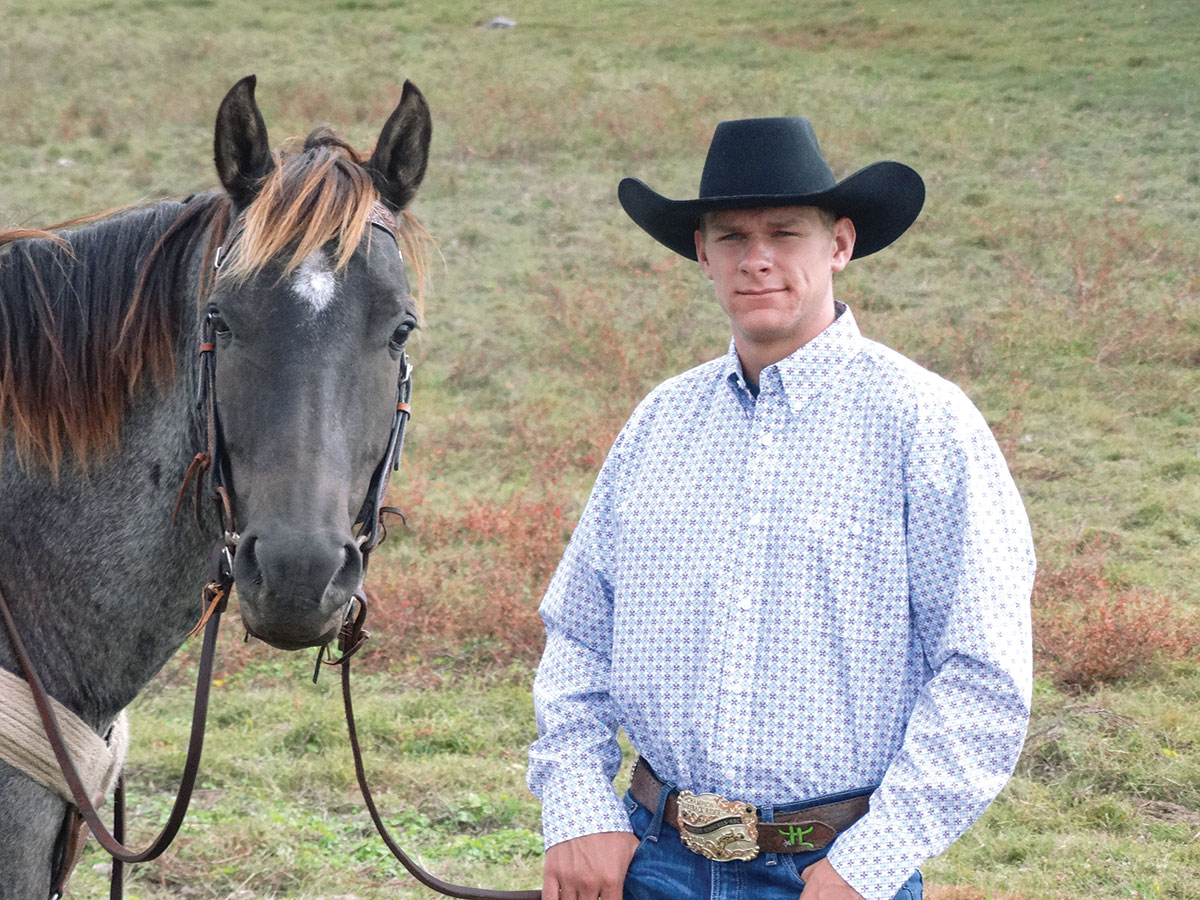
“We’re gonna raise what the market demands.” And that is just what Gary and Marilyn Townsend have done. Located just outside of Rose Bud, Ark., the Townsends raise Brangus cattle and market those cattle over the southeastern United States to producers looking to make improvements in their herd books and their checkbooks.
Their story begins over 30 years ago with a “duke’s mixture” of cattle as Gary laughingly called them. From Charolais to Santa Gertrudis, Gary and Marilyn have moved through many breeds trying to find that one breed that fits both their ranch resources and the needs of the commercial cattlemen they have built lasting relationships with. “We have good longevity in our cows. We have some at 14 years old producing 600 pound weaning weight calves,” Gary explained.
The Townsends began raising registered Brangus cattle almost 14 years ago. They purchased most of the current herd from the original Cow Creek operation in Alabama. Through a strategic alliance with Cow Creek, the Townsends would market their bulls back through the southeastern U.S. The Townsends continued their marketing relationship after Cow Creek was sold to Southern Cattle Company. As the years turned, Gary and Marilyn developed personal relationships with most of the producers that ultimately bought their bulls. That relationship building created the foundation to the private treaty marketing program they use today.
When asked about why they chose Brangus cattle, Gary chimed in real quick, “Longevity and long deep beefy carcass traits. On those hot steamy days the cattle will be out grazing. We’ve had a lot of other breeds on this place that look like hippos out in the ponds.” Gary believed the Brangus breed got the best traits from the cross breeding, “Heat tolerance, carcass traits and insect tolerance, pinkeye and mastitis problems are gone.”
The Townsends have a spring and fall calving program geared around 75 days of watching their Brangus cows drop the calves with ease, “We don’t pull calves, yet we have 70, 80 and 90 pound calves. But the cows can handle it. Super mommas.” Those calves are raised on summer perennials and winter annuals with free choice hay as needed. With over 500 plus acres of Tifton 44 hay fields, the cattle should have plenty.
At weaning, the bulls are pulled and sent on to be grown out and seasoned for their job. “We grow our bulls out at Rose Bud Feeders. Keith Cagle has been down there for over 13 years and can really grow out bulls,” states Gary. “Those bulls are worked every day from horseback. It really makes a difference in their personality.” The bulls are raised on a forage-based program from the Townsend ranch going through their feed out program, “We use a silage-based ration so the bulls won’t melt down when a cattleman gets it home.” Gary credits the forage-based ration to keeping the bulls sound when they hit the ground at their new home, “We like the feed efficiency, 3.5 to 4 pound average daily gain on the feed out. We try to grow them out slow where a cattleman can turn him out and he won’t melt down. A forage-based program will grow them out slower, but they go out there and really work.” With bull sales into Texas and Louisiana and over to the Seminole Nation in Florida, the Townsend bulls have a wide range of territory to prove they really work.
While at Rose Bud Feeders, various data points are collected on the growing bulls. One of the more interesting points is an ultrasound to determine backfat and ribeye area in the bulls. The collected data is then sent in to the Brangus association for a more complete look at the bulls the Townsend’s market. “It definitely costs more to do this (ultrasound), but we have better information for the cattleman looking at our bulls,” Gary commented.
“With what it costs to be in agriculture, I’m concerned about the youth involvement. We had $50 when we married. She took care of the operation while I was gone pipelining. I don’t know how young folks are going to get in if their family doesn’t have something to give them,” commented Gary. “We’re trying to do the best we can to build and hopefully hand this over to our family,” the Townsends stated. With both of their boys Chad and Thad and grandchildren around, Marilyn wants it to be a family business, “Our grandchildren are involved in 4-H and love helping us on the ranch. We want to pass this business along to them. We also want them to know this is where their food comes from.”
When asked to sum up their operation, Gary did not hesitate to give his opinion, “The bottom line is I don’t mind buying a high-dollar bull to make a difference for a commercial cattleman to drop good birth weight calves and wean a calf that makes him money at the barn. We try to keep as good of genetics as anybody in the country.” With Brangus herd sire names such as Sleep Easy, Integrity 742, Real Deal and Jethro, the Townsends seem to be keeping up with those words.







